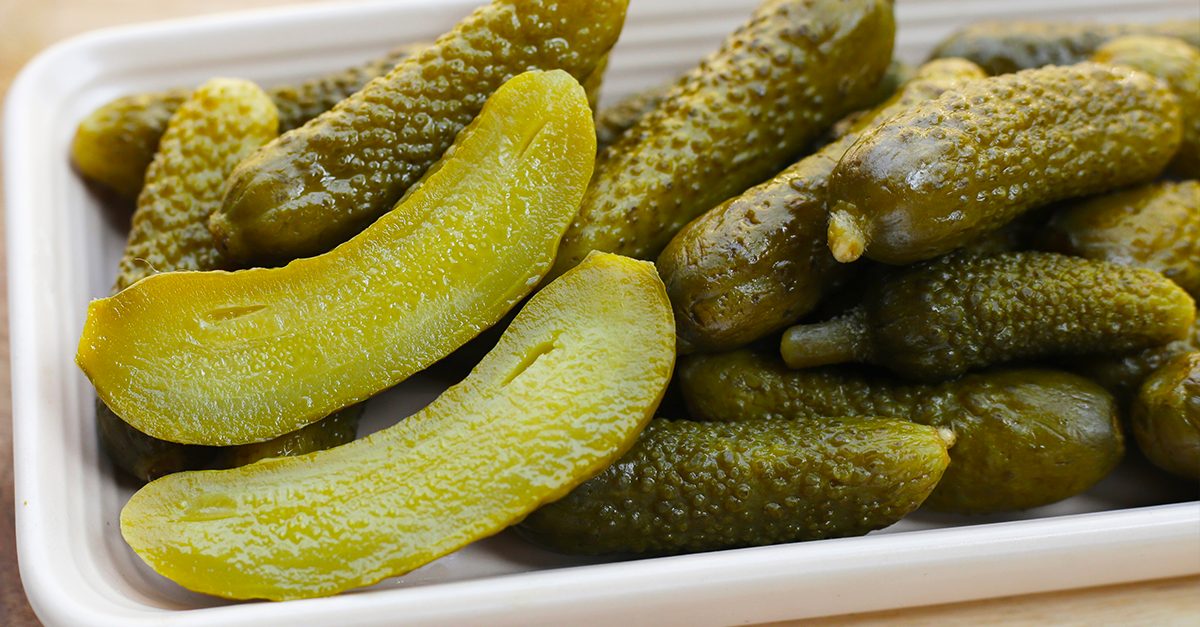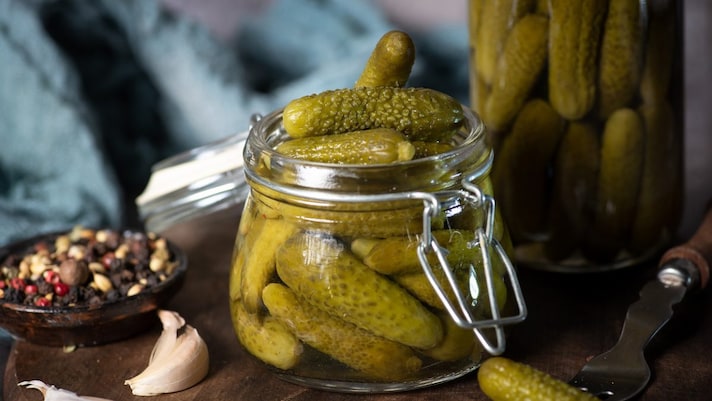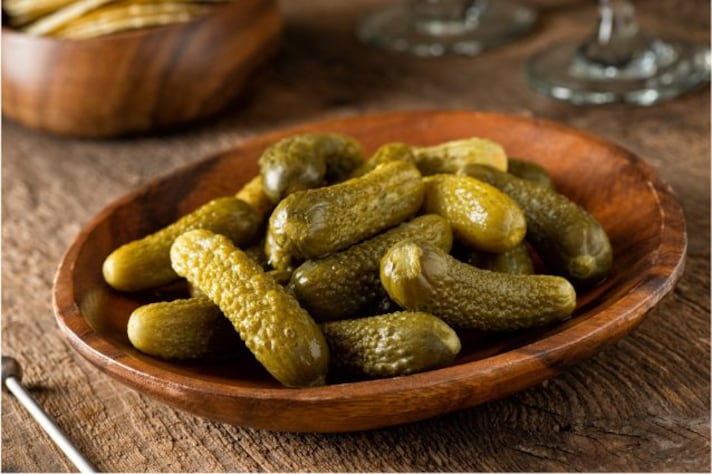;)
When it comes to food spoilage, we're all familiar with the usual suspects: mold, dark spots, and off-putting odors. These signs clearly warn us that it's time to discard certain perishables. However, what about foods that are preserved in unique ways, such as those stored in oil or vinegar? Specifically, can pickles, beloved for their tangy and salty crunch, actually go bad? Indeed, even pickles can spoil, and knowing when to throw them out is key to preventing foodborne illnesses. Here's how to tell when your pickles have gone past their prime and need to be disposed of.

Can Pickles Go Bad?
Absolutely, pickles can go bad. Despite being submerged in a preservative medium like vinegar, which inhibits the growth of bacteria, pickles are not invulnerable. The acidic environment in which they reside can only protect them for so long, especially once that environment is disrupted by frequent handling or if the brine's composition changes.

Signs of Spoiled Pickles
To determine if your pickles have gone bad, look for several key indicators:
- Unpleasant Smell: Fresh pickles should smell tangy and clean. A sour or foul odor is a clear sign of spoilage.
- Mold Growth: Any visible mold on the surface of the pickle brine or on the pickles themselves means they should be discarded immediately.
- Changed Texture: Pickles should be crisp. If they feel soft or mushy, they've lost their integrity and are likely spoiled.
- Discoloration: Any significant changes in color from their original hue could indicate spoilage.
If you observe any of these signs, it's safest to discard the pickles to avoid the risk of consuming something harmful.
How Long Do Pickles Last?
Understanding the shelf life of pickles, whether opened, unopened, or homemade, is essential for maintaining their best quality and safety.
Unopened Pickles
Commercially packaged pickles that are unopened can last for up to two years past their expiration date if they're stored in a cool, dry place. The high acidity and preservatives present in the brining solution help keep them safe and flavorful for this extended period.

Opened Pickles
Once opened, pickles should be kept in the refrigerator. Opened store-bought pickles can last for one to two years in the fridge, provided they're submerged in their brine.
Homemade Pickles
These generally have a shorter shelf life due to the lack of preservatives. Homemade pickles should be consumed within a few months of being opened and always kept refrigerated. If left out of the refrigerator for more than a few hours, opened pickles should be consumed quickly. Beyond that, the lack of refrigeration can accelerate spoilage, making them unsafe to eat.
;Resize,width=767;)
